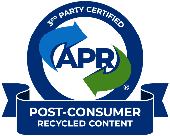PureCycle Provides Second Quarter 2024 Update
PureCycle announced a corporate update for the second quarter ending June 30, 2024.
Ironton, Ohio – PureCycle Technologies, Inc. (Nasdaq: PCT), a U.S.-based company revolutionizing plastic recycling, today, announced a corporate update for the second quarter ending June 30, 2024.
Management Commentary
PureCycle CEO Dustin Olson said, “Our team made foundational progress in the second quarter, in terms of production, improving our reliability, and with higher levels of co-product 2 or CP2. All of this has provided a further understanding of how the plant behaves at higher rates. The many improvements made at the Ironton Facility during the planned outage in April resulted in our highest production month in June. We understand there is more work to be done, but we have taken significant steps forward.” Olson added, “On the commercial front, I’m excited about the work we’ve done with compounding. This approach should allow us to make a one-pellet-solution that customers need for their specific application. We have received the first orders for our compounded PureFive™ material.”
Ironton Facility Update
A significant portion of the second quarter was spent making improvements to the Ironton Facility. The upgrades led to greater reliability during the production runs from late-May through June with feedstocks low in CP2. During that time, the Ironton Facility had multiple days with more than 100,000 pounds of pellets produced. When the Company transitioned to a feedstock with higher levels of CP2 in late-June and July, the rates were limited principally by reliability issues and the CP2 recovery and handling system.
The upgrades to the front end of the CP2 removal system made in April are working as designed. The material removed from the system is now consistent in form and density. The current primary limiting factor is reducing the size of the end-product, so it can be removed through an automated process. The Company has begun implementing adjustments to the recovery and handling system and believes once this limitation is removed, production rates should improve throughout the rest of the year.
In the meantime, the Company is continuing to pursue higher throughput by purchasing feedstock low in CP2 and sorting feedstocks for higher quality material. The Company has already installed one optical flake-sorting line that helps to reduce the CP2 in the feed. PureCycle expects to have an additional, larger flake-sorting line installed by the end of September. The combined output for the two lines is expected to be more than four million pounds per month.
PureCycle Commercial Update
The production during the second quarter has provided PureCycle’s commercial team with the opportunity to introduce the Company’s recycled resin to more markets. One avenue that should provide greater flexibility is through compounding. By blending the PureCycle resin with post-industrial recycled material or virgin polypropylene, compounded material provides a more consistent product, should simplify the customer approval process, and is expected to increase the ability to bring higher levels of recycled product to the market.
PureCycle is working with several partners that specialize in the development and production of recyclate-based polymers with similar performance properties and consistency to virgin resin. PureCycle will be offering multiple PureFive grades to customers that include a blend of PureCycle resin and varying levels of post-industrial recycled material or virgin polypropylene.
PureCycle Financials Update
PureCycle ended the second quarter of fiscal 2024 with approximately $10.9 million of unrestricted cash. On August 7, PureCycle reached an agreement on the sale of $22.5 million notional amount of its Southern Ohio Port Authority Revenue Bonds that will provide cash proceeds of $18.0 million.
###
PureCycle Contact
Christian Bruey
cbruey@purecycle.com
+1 (352) 745-6120
About PureCycle Technologies
PureCycle Technologies LLC., a subsidiary of PureCycle Technologies, Inc., holds a global license for the only patented solvent-driven purification recycling technology, developed by The Procter & Gamble Company (P&G), that is designed to transform polypropylene plastic waste (designated as No. 5 plastic) into a continuously renewable resource. The unique purification process removes color, odor, and other impurities from No. 5 plastic waste resulting in an ultra-pure recycled (UPR) plastic that can be recycled and reused multiple times, changing our relationship with plastic. www.purecycle.com
Forward-Looking Statements
This press release contains forward-looking statements, including statements about the financial condition, results of operations, earnings outlook and prospects of PCT. In addition, any statements that refer to projections, forecasts or other characterizations of future events or circumstances, including any underlying assumptions, are forward-looking statements. Forward-looking statements generally relate to future events or PureCycle’s future financial or operating performance and may refer to projections and forecasts. Forward-looking statements are often identified by future or conditional words such as “plan,” “believe,” “expect,” “anticipate,” “intend,” “outlook,” “estimate,” “forecast,” “project,” “continue,” “could,” “may,” “might,” “possible,” “potential,” “predict,” “should,” “would” and other similar words and expressions (or the negative versions of such words or expressions), but the absence of these words does not mean that a statement is not forward-looking.
The forward-looking statements are based on the current expectations of PureCycle’s management and are inherently subject to uncertainties and changes in circumstances and their potential effects and speak only as of the date of this press release. There can be no assurance that future developments will be those that have been anticipated. These forward-looking statements involve a number of risks, uncertainties or other assumptions that may cause actual results or performance to be materially different from those expressed or implied by these forward-looking statements. These risks and uncertainties include, but are not limited to, those factors described in the section entitled “Risk Factors” in each of PureCycle’s Annual Report on Form 10-K for the fiscal year ended December 31, 2023 and PureCycle’s Quarterly Reports on Form 10-Q, those discussed and identified in other public filings made with the Securities and Exchange Commission by PureCycle and the following: PCT's ability to obtain funding for its operations and future growth and to continue as a going concern; PCT's ability to meet, and to continue to meet, applicable regulatory requirements for the use of PCT’s ultra-pure recycled (“UPR”) resin in food grade applications (including in the United States, Europe, Asia and other future international locations); PCT's ability to comply on an ongoing basis with the numerous regulatory requirements applicable to the UPR resin and PCT’s facilities (including in the United States, Europe, Asia and other future international locations); expectations and changes regarding PCT’s strategies and future financial performance, including its future business plans, expansion plans or objectives, prospective performance and opportunities and competitors, revenues, products and services, pricing, operating expenses, market trends, liquidity, cash flows and uses of cash, capital expenditures, and PCT’s ability to invest in growth initiatives; the ability of PCT’s first commercial-scale recycling facility in Lawrence County, Ohio (the “Ironton Facility”) to be appropriately certified by Leidos, following certain performance and other tests, and commence full-scale commercial operations in a timely and cost-effective manner or at all; PCT’s ability to meet, and to continue to meet, the requirements imposed upon it and its subsidiaries by the funding for its operations, including the funding for the Ironton Facility; PCT’s ability to minimize or eliminate the many hazards and operational risks at its manufacturing facilities that can result in potential injury to individuals, disrupt its business (including interruptions or disruptions in operations at its facilities), and subject PCT to liability and increased costs; PCT’s ability to complete the necessary funding with respect to, and complete the construction of, (i) its first U.S. multi-line facility, located in Augusta, Georgia; (ii) its first commercial-scale European plant located in Antwerp, Belgium and (iii) its first commercial-scale Asian plant located in Ulsan, South Korea, in a timely and cost-effective manner; PCT’s ability to procure, sort and process polypropylene plastic waste at its planned plastic waste prep facilities; PCT’s ability to maintain exclusivity under the Procter & Gamble Company license; the implementation, market acceptance and success of PCT’s business model and growth strategy; the success or profitability of PCT’s offtake arrangements; the ability to source feedstock with a high polypropylene content at a reasonable cost; PCT’s future capital requirements and sources and uses of cash; developments and projections relating to PCT’s competitors and industry; the outcome of any legal or regulatory proceedings to which PCT is, or may become, a party including the securities class action and putative class action cases; geopolitical risk and changes in applicable laws or regulations; the possibility that PCT may be adversely affected by other economic, business, and/or competitive factors, including interest rates, availability of capital, economic cycles, and other macro-economic impacts; turnover in employees and increases in employee-related costs; changes in the prices and availability of labor (including labor shortages), transportation and materials, including inflation, supply chain conditions and its related impact on energy and raw materials, and PCT’s ability to obtain them in a timely and cost-effective manner; any business disruptions due to political or economic instability, pandemics, armed hostilities (including the ongoing conflict between Russia and Ukraine and the conflict in the Middle East); the potential impact of climate change on PCT, including physical and transition risks, higher regulatory and compliance costs, reputational risks, and availability of capital on attractive terms; and operational risk.






-1.png)
